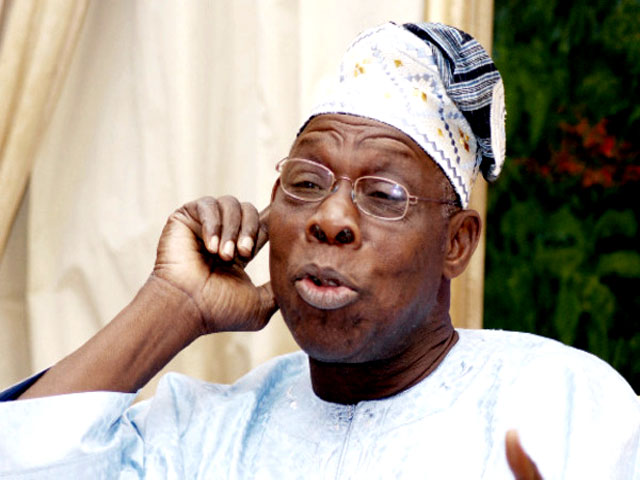Former President Olusegun Obasanjo has said the war against the deadly terrorist sect, Boko Haram is not over.
The former Nigerian leader also urged the international community to help tackle the humanitarian crisis in the North East.
“We call on the international community for help. Yes, the Boko Haram terrorists are on the run, but the Boko Haram menace has not been completely solved,” he said at the donation of 35,930 kilograms of seeds by the International Institute of Tropical Agriculture (IITA), to Borno State Government in Maiduguri on Monday.
Obasanjo, an IITA Ambassador, said the international community had great role to play in ensuring food security in the region.
“We have to tell the world that our problem in the North East is not our inability to feed ourselves because we are lazy.
“Our problem has to do with the menace of Boko Haram and the insecurity that we have to face for the past years”, he said.
Obasanjo commended Governor Kashim Shettima for his numerous achievements in agriculture in spite of the Boko Haram insurgency.
“When I came in to the Farm Center, I saw this line of tractors, 1000 of them, I also saw combined harvesters complete with their implements.
“What stuck my mind was that we need to tell the world that our problem in the North-East is not because people are not willing or ready to work in agriculture.
“It has to do with the insecurity associated with the Boko Haram insurgency”, he said.
In his address, Shettima thanked the former president for the visit and for identifying with Borno people.
He said most of the Internally Displaced Persons, IDPs had started returning back to their liberated communities.
Shettima noted that the provision of new improved varieties of maize, rice, millet, soyabean, sorghum, cowpea, will go along way in completing efforts of the state government in its agricultural revolutionary drive address unemployment and hunger, and promised continued partnership with his government and IITA.
